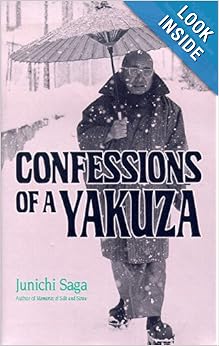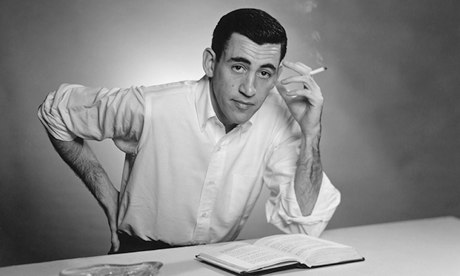
Bob Dylan reads, and over the years he’s read an eclectic mix of fiction and non-fiction. He’s name-dropped writers in his songs and in his interviews. “Ballad of a Thin Man” famously mentions F. Scott Fitzgerald:
You’ve been through all of,
F. Scott Fitzgerald’s books,
You’re very well read,
It’s well known.
In “Stuck Inside of Mobile With The Memphis Blues Again,” he sings:
Well, Shakespeare, he’s in the alley,
With his pointed shoes and his bells,
Speaking to some French girl,
Who says she knows me well.”
Dylan spends pages of his memoir “Chronicles” talking about books and authors.
Below I’ve listed ten books that Dylan has read and appreciated. Some are featured on his website, others he’s spoken about in interviews.
In some cases I’ve included text off Dylan’s website. In others there are quotes from Dylan about the book.
1 Bound For Glory by Woody Guthrie
Bob Dylan, in “Chronicles”: I went through it from cover to cover like a hurricane, totally focused on every word, and the book sang out to me like the radio. Guthrie writes like the whirlwind and you get tripped out on the sound of the words along. Pick up the book anywhere,turn to any page and he hits the ground running. “Bound for Glory” is a hell of a book. It’s huge. Almost too big.

2 The Conscience of the Folk Revival: The Writings of Israel “Izzy” Young by Scott Barretta
From Dylan’s website: Israel G. “Izzy” Young was the proprietor of the Folklore Center in Greenwich Village from the late 1950s to the early 1970s. The literal center of the New York folk music scene, the Center not only sold records, books, and guitar strings but served as a concert hall, meeting spot, and information kiosk for all folk scene events. Among Young’s first customers was Harry Belafonte; among his regular visitors were Alan Lomax and Pete Seeger. Shortly after his arrival in New York City in 1961, an unknown Bob Dyan banged away at songs on Young’s typewriter. Young would also stage Dylan’s first concert, as well as shows by Joni Mitchell, the Fugs, Emmylou Harris, and Tim Buckley, Doc Watson, Son House, and Mississippi John Hurt.
The Conscience of the Folk Revival: The Writings of Israel “Izzy” Young collects Young’s writing, from his regular column “Frets and Frails” for Sing Out! Magazine (1959-1969) to his commentaries on such contentious issues as copyright and commercialism. Also including his personal recollections of seminal figures, from Bob Dylan and Alan Lomax to Harry Smith and Woody Guthrie, this collection removes the rose tinting of past memoirs by offering Young’s detailed, day-by-day accounts. A key collection of primary sources on the American countercultural scene in New York City, this work will interest not only folk music fans, but students and scholars of American social and cultural history.
3 The Anchor Anthology of French Poetry by Angel Flores, editor
From Dylan’s website: Introduction by Patti Smith.

4 On The Road by Jack Kerouac
Bob Dylan on his website: “I read On the Road in maybe 1959. It changed my life like it changed everyone else’s.”
Bob Dylan in “Chronicles”: Within the first few months that I was in New York I’d lost my interest in the “hungry for kicks” hipster vision that Kerouac illustrates so well iin his book, “On the Road.” That book had been like a bible for me. Not anymore, though. I still loved the breathless, dynamic bob poetry phrases that flowed from Jack’s pen, but now, that charaacter Moriarty seemed out of place, purposeless — seemed like a character who inspired idiocy. He goes through life bumbing and grinding with a bull on top of him.
From Dylan’s website: Few novels have had as profound an impact on American culture as On The Road. Pulsating with the rhythms of 1950s underground America, jazz, sex, illicit drugs, and the mystery and promise of the open road, Kerouac’s classic novel of freedom and longing defined what it meant to be “beat” and has inspired generations of writers, musicians, artists, poets, and seekers who cite their discovery of the book as the event that “set them free.” Based on Kerouac’s adventures with Neal Cassady, On The Road tells the story of two friends whose four cross-country road trips are a quest for meaning and true experience. Written with a mixture of sad-eyed naïveté and wild abandon, and imbued with Kerouac’s love of America, his compassion for humanity, and his sense of language as jazz, On The Road is the quintessential American vision of freedom and hope, a book that changed American literature and changed anyone who has ever picked it up.

5 One Hundred Dollar Misunderstanding by Robert Gover
Dylan praised the book during an interview with Studs Terkel on radio station WFMT in 1963. “I got a friend who wrote a book, it’s called ‘One Hundred Dollar Misunderstanding,’ it’s about this straight-A college kid, fraternity guy, and a 14-year-old negro prostitute, and it’s got two dialogues in the same book. One chapter is what he’s doing and what he does, and the next chapter is her view of him. It actually comes out and states something that’s actually true… This guy who wrote it, you can’t label him. He’s unlabelable.”
6 The Oxford Book of English Verse by Christopher Ricks, editor
From Dylan’s website: Here is a treasure-house of over seven centuries of English poetry, chosen and introduced by Christopher Ricks, whom Auden described as “exactly the kind of critic every poet dreams of finding.” The Oxford Book of English Verse , created in 1900 by Arthur Quiller-Couch and selected anew in 1972 by Helen Gardner, has established itself as the foremost anthology of English poetry: ample in span, liberal in the kinds of poetry presented. This completely fresh selection brings in new poems and poets from all ages, and extends the range by another half-century, to include many twentieth-century figures not featured before–among them Philip Larkin and Samuel Beckett, Thom Gunn and Elaine Feinstein–right up to Ted Hughes and Seamus Heaney.
Here, as before, are lyric (beginning with medieval song), satire, hymn, ode, sonnet, elegy, ballad, but also kinds of poetry not previously admitted: the riches of dramatic verse by Marlowe, Shakespeare, Jonson, Webster; great works of translation that are themselves true English poetry, such as Chapman’s Homer (bringing in its happy wake Keats’s ‘On First Looking into Chapman’s Homer’), Dryden’s Juvenal, and many others; well-loved nursery rhymes, limericks, even clerihews. English poetry from all parts of the British Isles is firmly represented–Henryson and MacDiarmid, for example, now join Dunbar and Burns from Scotland; James Henry, Austin Clarke, and J. M. Synge now join Allingham and Yeats from Ireland; R. S. Thomas joins Dylan Thomas from Wales–and Edward Taylor and Anne Bradstreet, writing in America before its independence in the 1770s, are given a rightful and rewarding place. Some of the greatest long poems are here in their entirety–Wordsworth’s ‘Tintern Abbey’, Coleridge’s ‘Rime of the Ancient Mariner’, and Christina Rossetti’s ‘Goblin Market’–alongside some of the shortest, haikus, squibs, and epigrams.
7 Thucydides: The War of the Peloponnesians and the Athenians by Thucydides (Author) , Jeremy Mynott (Translator)
Dylan in “Chronicles”: “[It’s ] A narrative which would give you the chills. It was written four hundred years before Christ and it talks about how human nature is always the enemy of anything superior. Thucydides writes about how words in his time have changed from their ordinary meaning, how actions and opinions can be altered in the blink of an eye. It’s like nothing has changed from his time to mine.”

8 Last Train To Memphis by Peter Guralnick
From Dylan’s website: Train to Memphis was hailed on publication as the definitive biography of Elvis Presley. Peter Guralnick’s acclaimed book is the first to set aside the myths and focus on Elvis’ humanity, as it traces Elvis’ early years, from humble beginnings to unprecedented success. At the heart of the story is Elvis himself, a poor boy of great ambition and fiery musical passions, who connected with his audience and the age in a way that has yet to be duplicated.
9 The Life and Times of Sonny Barger and the Hell’s Angels Motorcycle Club, by Sonny Barger
Bob Dylan in the 2012 Rolling Stone interview: Look who wrote this book. [Points at coauthors’ names, Keith Zimmerman and Kent Zimmerman.] Do those names ring a bell? Do they look familiar? Do they? You wonder, “What’s that got to do with me?” But they do look familiar, don’t they? And there’s two of them there. Aren’t there two? One’s not enough? Right? [Dylan’s now seated, smiling.]
I’m going to refer to this place here. [Opens the book to a dog-eared page.] Read it out loud here. Just read it out loud into your tape recorder.
“One of the early presidents of the Berdoo Hell’s Angels was Bobby Zimmerman. On our way home from the 1964 Bass Lake Run, Bobby was riding in his customary spot – front left – when his muffler fell off his bike. Thinking he could go back and retrieve it, Bobby whipped a quick U-turn from the front of the pack. At that same moment, a Richmond Hell’s Angel named Jack Egan was hauling ass from the back of the pack toward the front. Egan was on the wrong side of the road, passing a long line of speeding bikes, just as Bobby whipped his U-turn. Jack broadsided poor Bobby and instantly killed him. We dragged Bobby’s lifeless body to the side of the road. There was nothing we could do but to send somebody on to town for help.” Poor Bobby.

10 Confessions of a Yakuza, Dr. Junichi Saga
In the 2012 Rolling Stone interview Bob Dylan was asked about some lines in songs on Love and Theft that seem to be very close to lines in Saga’s book and Dylan responded: Oh, yeah, in folk and jazz, quotation is a rich and enriching tradition. That certainly is true. It’s true for everybody, but me. I mean, everyone else can do it but not me. There are different rules for me. And as far as Henry Timrod is concerned, have you even heard of him? Who’s been reading him lately? And who’s pushed him to the forefront? Who’s been making you read him? And ask his descendants what they think of the hoopla. And if you think it’s so easy to quote him and it can help your work, do it yourself and see how far you can get. Wussies and pussies complain about that stuff. It’s an old thing – it’s part of the tradition. It goes way back. These are the same people that tried to pin the name Judas on me. Judas, the most hated name in human history! If you think you’ve been called a bad name, try to work your way out from under that. Yeah, and for what? For playing an electric guitar? As if that is in some kind of way equitable to betraying our Lord and delivering him up to be crucified. All those evil motherfuckers can rot in hell.
Seriously?
I’m working within my art form. It’s that simple. I work within the rules and limitations of it. There are authoritarian figures that can explain that kind of art form better to you than I can. It’s called songwriting. It has to do with melody and rhythm, and then after that, anything goes. You make everything yours. We all do it.
-– A Days of the Crazy-Wild blog post: sounds, visuals and/or news –-




